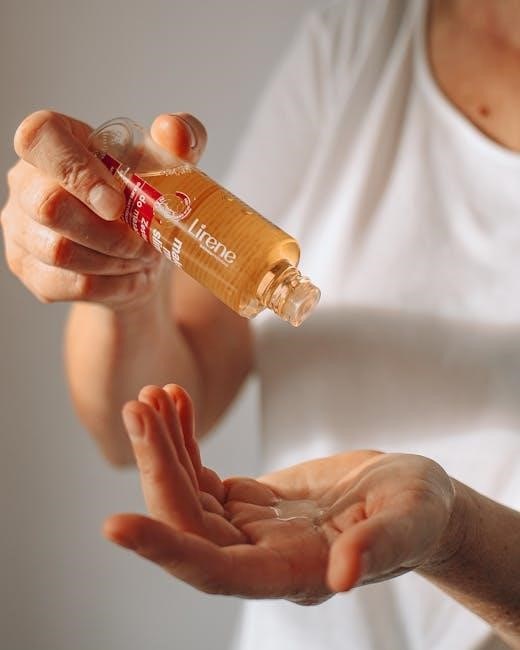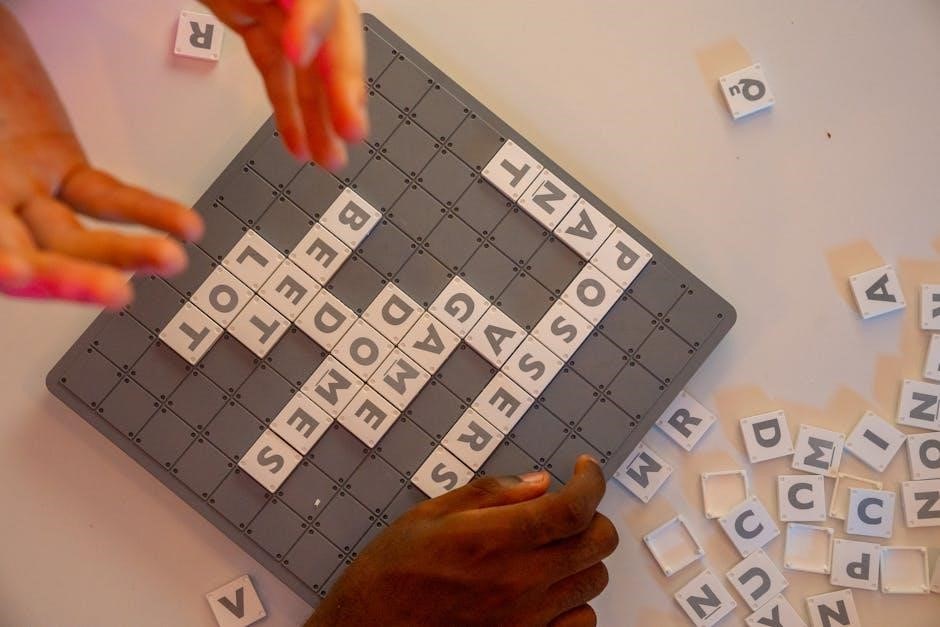acs800 manual
This document serves as your gateway to efficiency, introducing the ABB ACS800 drive manuals. It covers hardware for drives from 45 to 560 kW, designed to familiarize users with features and functions, ensuring comprehensive understanding of these powerful systems.
Purpose of the ACS800 Manual
The primary purpose of these comprehensive guides is multifaceted, serving as an indispensable resource for anyone interacting with the drives. They fundamentally aim to streamline workflow and boost productivity for operators and technicians. Each guide meticulously provides essential hardware documentation for various models, covering drives ranging from 45 to 560 kW (60 to 600 HP). Beyond technical specifications, a crucial objective is to ensure safe and efficient equipment operation. This is achieved by detailing critical safety instructions, which are absolutely paramount for qualified electricians involved in both the installation and ongoing maintenance. The manuals also meticulously introduce and thoroughly familiarize users with the intricate features and diverse functions inherent to the systems. They act as a foundational educational tool, enabling personnel to confidently manage and troubleshoot the sophisticated machinery. Furthermore, they support effective drive parameter management, including detailed procedures for uploading and downloading programmed data. This ensures valuable configurations are preserved and consistently deployed across units, optimizing performance and minimizing potential operational errors. In essence, the overarching purpose empowers users with the comprehensive knowledge required for peak performance, critical operational efficiency, and system longevity.
Scope of Hardware Manuals
The hardware manuals for ABB ACS800 drives delineate the extensive physical and operational specifications of these robust systems. Specifically, they provide critical documentation for a broad range of drives, encompassing power ratings from 45 to 560 kW, which translates to 60 to 600 HP. This comprehensive scope ensures that users, particularly qualified electricians, have access to detailed information pertinent to various models and their respective physical configurations. The manuals introduce the specifics of models like the ACS800-04/U4 and ACS800-04M series, meticulously describing their drive components and structures. They cover aspects essential for proper installation, including precise physical dimensions, connection points, and environmental requirements, alongside critical electrical diagrams and mounting instructions. Furthermore, these documents outline the technical data related to the drive’s internal hardware, such as power circuits, cooling systems, and protective features, ensuring safe and efficient integration. The aim is to furnish a complete understanding of the drive’s physical attributes, facilitating correct setup, wiring, and seamless integration into industrial environments. This detailed coverage is crucial for ensuring the drive operates within its specified parameters and maintains optimal performance, reliability, and safety throughout its operational lifespan.
Target Audience: Qualified Electricians
The ABB ACS800 manuals are meticulously crafted with a specific professional in mind: the qualified electrician. This targeted approach is paramount due to the inherent complexities and potential electrical hazards associated with installing, commissioning, and maintaining high-power industrial drives. Qualified electricians possess the essential expertise in electrical systems, safety protocols, and regulatory compliance, which are indispensable when working with equipment ranging from 45 to 560 kW. The documentation provides critical safety instructions explicitly tailored for these professionals, guiding them through secure installation procedures and demanding maintenance requirements. They are expected to understand intricate wiring diagrams, interpret technical specifications, and execute precise electrical connections. Furthermore, these manuals equip them with the knowledge to diagnose operational issues, perform corrective actions, and ensure the drive’s optimal performance and longevity. Their specialized training ensures that all operations are conducted safely, preventing accidents and damage to both personnel and equipment. By addressing this highly skilled audience, the manuals facilitate the correct application and ongoing reliability of the ACS800 drives, underscoring the necessity of professional competence for successful deployment and sustained operation within industrial environments. This ensures that the advanced capabilities of the ACS800 are fully realized under expert supervision.

Getting Started with Your ACS800 Manual
To begin, this guide introduces your new ACS800 manual. It is designed to familiarize you with the drive’s key features, functions, and operational aspects. Reading thoroughly streamlines workflow and boosts productivity, ensuring comprehensive system understanding for efficient use.
The initial sections of any ABB ACS800 manual serve as a crucial starting point for users seeking comprehensive understanding. These introductions are meticulously crafted to welcome the reader and immediately establish the manual’s primary objectives and scope. For instance, you might encounter a direct greeting such as, “Hello and welcome to the user manual for your brand new Acs800 Manual.” This sets a welcoming tone and prepares the user for the subsequent technical details and operational guidelines.

Crucially, these introductory pages are designed to familiarize you with the specific drive model being addressed, outlining its core features and fundamental functions. They often provide a high-level overview, explaining how the guide itself will explore various ways your new ABB ACS800-04 Manual can streamline workflow and significantly boost productivity. Understanding these initial statements is paramount because they lay the essential groundwork for effective navigation through the more complex sections.
The introduction clarifies the overall scope, often stating, “About this manual introduces this manual.” It might also immediately specify particular models, such as “The ACS800-04/U4 and ACS800-04M describes the drive,” thereby defining the exact hardware covered. Reading these first pages thoroughly is essential for grasping the manual’s structure and its overall purpose before delving into operational specifics.
Overview of Features and Functions
Following the introductory remarks, the manuals meticulously transition into a comprehensive overview of the drive’s core features and operational functions. This vital section is specifically designed to familiarize users with the full spectrum of capabilities inherent in the ABB ACS800 series. It systematically outlines how these advanced drives are engineered to streamline workflow processes and significantly boost productivity across diverse industrial environments. The guides meticulously explain the fundamental functionalities, ensuring that qualified electricians and engineers gain a solid grasp of the operational principles before proceeding to more intricate configurations.
This overview typically covers crucial aspects such as motor control mechanisms, integrated protection features, and fundamental communication interfaces. It elucidates how various components within the drive system interact to achieve peak performance and energy efficiency; Furthermore, this section often alludes to the embedded memory capabilities within both the control HMI and the drive unit, which are critical for retaining programmed data securely. While specific upload and download procedures are detailed elsewhere, this part establishes the existence and importance of such functionalities. The objective is to furnish a robust foundational understanding of what the drive accomplishes and its operational mechanics, thereby preparing users for practical application and detailed technical exploration.

Safety Instructions and Guidelines
This critical section details essential safety instructions and guidelines for the ABB ACS800 drives. It specifically targets qualified electricians, outlining the necessary procedures to ensure safe installation and maintenance of these powerful industrial units, protecting personnel and equipment alike.

Installation Safety Procedures
Ensuring the safe installation of ABB ACS800 drives is paramount, and this section explicitly details the procedures qualified electricians must follow; Strict adherence to the manual’s guidelines is non-negotiable to prevent accidents and equipment damage. Before commencing any work, electricians must perform a complete lockout/tagout procedure, verifying that all power sources to the drive and associated machinery are disconnected and de-energized. This includes checking for residual voltage across all terminals using appropriate testing equipment. Proper grounding of the drive unit is a fundamental safety requirement, as specified in the hardware manual, to protect against electrical shock and ensure EMI compliance. Electricians must wear appropriate Personal Protective Equipment (PPE), such as insulated gloves, safety glasses, and arc-flash protective clothing, throughout the installation process. All wiring connections, both power and control, must be meticulously checked for correct polarity, secure fastening, and insulation integrity. Overlooking even minor details can lead to severe electrical hazards or operational failures. Furthermore, the installation environment must be assessed for suitable ventilation, temperature, and humidity, as outlined in the drive specifications, to ensure safe and optimal long-term operation. Any lifting or positioning of the drive must be done using approved methods and equipment to prevent mechanical injuries. Never attempt to modify the drive’s internal components during installation. Always refer to the specific model’s hardware manual for precise instructions on mounting, clearances, and connection diagrams. Verifying all connections meet local electrical codes and ABB specifications before initial power application is a critical final step. This meticulous approach safeguards personnel and ensures the drive functions as intended, safely.
Maintenance Safety Requirements
Maintaining ABB ACS800 drives demands strict adherence to safety protocols, exclusively by qualified electricians. Prior to any maintenance operation, it is imperative to implement a comprehensive lockout/tagout procedure, ensuring all power sources to the drive are completely disconnected and secured. This includes verifying the absence of residual voltage across all terminals, particularly checking the DC link capacitors which can retain dangerous charges for extended periods. Always allow sufficient discharge time as specified in the manual before touching internal components. Personal Protective Equipment (PPE), such as insulated gloves, safety glasses, and arc-flash protective clothing, must be worn throughout the entire maintenance process to mitigate electrical hazards. When inspecting or replacing components, handle them with care, especially sensitive electronic boards. Never bypass safety interlocks or modify the drive’s internal wiring or structure without explicit authorization and guidance from the official ABB manual. Regular visual inspections for signs of wear, loose connections, or environmental degradation are crucial for proactive safety. Ensure the drive’s cooling system remains unobstructed and functional. Any troubleshooting or repair work must strictly follow the procedures outlined in the specific ACS800 model’s service manual. Ignoring these critical safety requirements can lead to severe personal injury, equipment damage, and operational downtime. Always prioritize safety over speed when performing maintenance tasks on these powerful industrial drives.

Specific ABB ACS800 Drive Models Covered
This section details specific drive models, including hardware manuals for ACS800-04/U4 and ACS800-04M series. It also encompasses user manuals for the ACS800-307 and ACS800-507, providing comprehensive guidance for these particular ABB ACS800 units.

ACS800-04/U4 and ACS800-04M Series
The ABB ACS800-04/U4 and ACS800-04M series are specifically addressed in dedicated hardware manuals, providing crucial information for professionals. These documents describe the drive’s physical characteristics, precise installation procedures, and operational principles unique to these models. They are vital resources for electricians and engineers responsible for implementing and maintaining these particular ABB ACS800 units, which are part of the broader range covering 45 to 560 kW (60 to 600 HP).
The manuals for the ACS800-04/U4 and ACS800-04M delineate their specific configurations, detailed technical specifications, and exact connection requirements. They thoroughly guide users through proper physical setup, wiring, and critical initial inspection processes, ensuring a secure and functional installation. Crucially, these comprehensive guides cover distinct hardware aspects, including power and motor connections, control signal interfaces, and essential environmental integration considerations. By focusing on these specific models, the documentation ensures a profound understanding of their unique features, enabling optimal performance and safety within industrial applications.
ACS800-307 and ACS800-507 User Manuals
The user manuals for the ABB ACS800-307 and ACS800-507 drives are comprehensive resources designed to guide operators through their specific functionalities. These documents, often found within collections like manuallib and ABB Collection manuals_contributions, provide detailed insights into the operational aspects of these particular drive models. For instance, the ACS800-307/ACS800-507 user manual, with an item size of 33.1M and added on 2022-03-26 23:45:01, covers essential information for daily use and programming.
These manuals delve into topics crucial for effective drive management, including understanding display interfaces, navigating menus, and interpreting various status indicators. They are instrumental for users who need to configure parameters, monitor performance, and execute routine control commands. The content is tailored to help users maximize the efficiency and reliability of their ACS800-307 and ACS800-507 units by providing clear, step-by-step instructions for all user-level interactions. This ensures that operators can confidently manage and optimize the drives’ performance in diverse industrial settings.

Advanced Operations and Parameters
This section explores sophisticated functionalities for ABB ACS800 drives. It covers managing drive parameters, uploading and downloading programmed data between the control HMI and drive memory, and detailed interactions for optimal operational control and configuration.
Drive Parameter Management
Effective drive parameter management is fundamental to optimizing the performance and reliability of your ABB ACS800 system. This critical process involves carefully setting and configuring the numerous operational characteristics of the drive. Parameters dictate everything from precise motor speed and torque limits to acceleration and deceleration ramps, ensuring the drive operates efficiently and safely within its specific application. Proper parameter configuration is crucial for achieving energy savings, extending equipment lifespan, and preventing operational inefficiencies.
The control HMI serves as the primary interface for accessing and adjusting these vital settings. Users must possess a thorough understanding of each parameter’s function to prevent potential misconfigurations that could lead to system malfunctions or safety hazards. Notably, both the control HMI and the drive itself contain memory specifically designed to retain programmed data. This ensures consistent operation and the preservation of customized settings even after power cycles; This integrated memory system facilitates the secure storage of tailored parameter sets, which can be recalled or modified as operational requirements evolve. Effective management encompasses not only the initial setup but also the ongoing monitoring and fine-tuning of these values to adapt to varying load conditions or production needs. Regular review of parameter settings helps prevent unexpected downtime and optimizes the drive’s responsiveness, contributing to overall system stability and performance.
Uploading Programmed Data
The process of uploading programmed data from an ABB ACS800 drive is a crucial task for data management and system reliability. Both the control HMI and the drive itself contain dedicated memory to keep all programmed operational data, including customized parameters and specific configurations. Uploading involves extracting this stored information, typically from the drive or its HMI, and saving it to an external device or a different memory location. This procedure is essential for creating backups of the current drive settings, which can be invaluable for disaster recovery or for replicating configurations across multiple drives efficiently. When a drive’s parameters are perfectly tuned for a specific application, uploading ensures that these optimal settings are preserved and can be quickly restored if necessary. It safeguards against data loss due to unforeseen issues or human error during maintenance operations. The ability to upload programmed data streamlines commissioning processes by allowing technicians to quickly transfer known good configurations to new or replacement units. This efficient data handling capability minimizes downtime and ensures consistent performance across an installation. Understanding the precise steps for performing an upload is vital for maintaining the integrity and functionality of the ABB ACS800 system.

Downloading Programmed Data
Downloading programmed data to an ABB ACS800 drive is a fundamental operation for configuration and maintenance. This process involves transferring previously saved parameter sets or entire control programs from an external source, such as a computer or a backup memory card, directly into the drive’s internal memory or its Human Machine Interface (HMI). Both the control HMI and the drive itself possess memory capabilities designed to store programmed data effectively. The primary purpose of downloading is to restore a drive’s operational parameters to a known state, particularly after a factory reset, a firmware update, or the replacement of a drive component. It also plays a crucial role in the initial setup of new drives, allowing engineers to quickly apply standardized configurations that have been proven in similar applications. This ensures uniformity in performance and behavior across an entire fleet of ACS800 drives. Furthermore, downloading enables the rapid deployment of updated control logic or optimized parameter values, facilitating continuous improvement and adaptation to changing operational requirements. Adhering to the correct downloading procedure, as detailed in the ACS800 manual, is paramount to prevent configuration errors and ensure the drive operates safely and efficiently according to its intended design.
Control HMI Interaction
The Control HMI (Human Machine Interface) serves as the primary interactive portal for managing and operating the ABB ACS800 drives. This interface provides qualified electricians with direct access to critical drive information and control functionalities. Through the HMI, users can monitor real-time operational status, review fault codes, and observe various performance parameters, which are essential for diagnostics and routine checks. Crucially, the HMI contains its own memory, allowing it to keep programmed data, making it a vital tool for both parameter management and troubleshooting. Users interact with the HMI to navigate menus, adjust settings, and initiate commands, ensuring the drive operates according to specific application requirements. This direct interaction facilitates the uploading and downloading of programmed data, enabling efficient configuration and restoration of drive parameters. Understanding the HMI’s layout and functionality, as detailed in the manual, is paramount for effective drive supervision, quick parameter modifications, and maintaining optimal system performance without necessarily requiring external software for every adjustment.

Manuals for Optional Devices
Beyond the core documentation for the ABB ACS800 drives themselves, a comprehensive suite of user manuals exists specifically for the various optional devices that can be seamlessly integrated with these systems. These supplementary manuals are crucial for qualified electricians and engineers seeking to fully leverage the robust capabilities of their ACS800 installations, especially when custom configurations or extended functionalities are required. Optional devices, which may include fieldbus adapters, I/O extension modules, braking choppers, encoder interface units, or specialized control panels, each come with their own dedicated documentation. These manuals provide highly detailed instructions on their proper mechanical and electrical installation, specific parameter settings, and seamless integration procedures with the main drive system. They also include comprehensive wiring diagrams, practical configuration examples, and thorough troubleshooting guides unique to the optional device, ensuring flawless operation and compatibility. The availability of several users manuals for these optional components underscores ABB’s unwavering commitment to providing thorough support for every aspect of the ACS800 ecosystem. Consulting these detailed guides is absolutely essential for successful implementation, optimal functionality, and overall enhanced system reliability, safety, and operational performance across diverse applications.


























































































